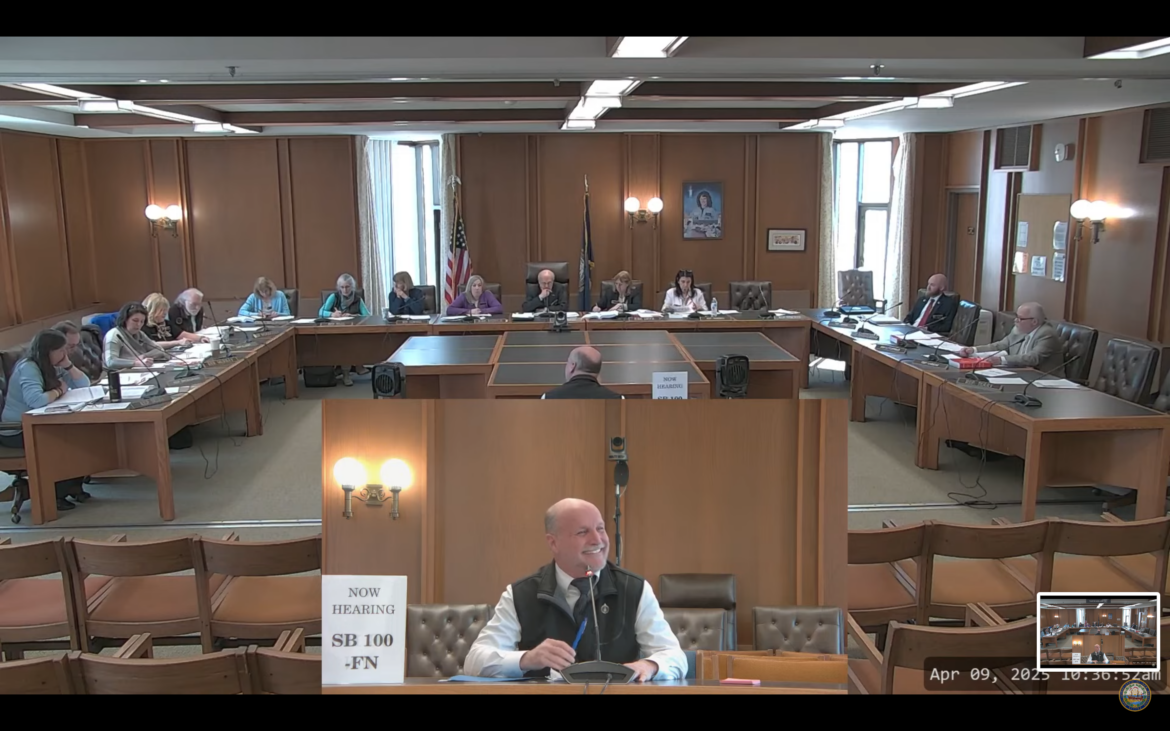By GARRY RAYNO, InDepthNH.org
CONCORD — A bill to add a teacher’s mental state to the state divisive concepts law is not enough to overturn the federal court’s injunction, a House committee was told Wednesday.
Senate Bill 100 would add the phrase a teacher would have to “intentionally or knowingly” violate the law to be guilty of breaking the law.
The prime sponsor of the bill which passed the Senate on a partisan 16-8 vote, Sen. Timothy Lang, R-Sanbornton, told the House Education Policy and Administration Committee Wednesday, the bill would fix the issue raised by the federal judge in finding the state’s law unconstitutionally vague.
He said like in many other instances, the state would have to find the teacher intentionally or knowingly violated the law.
“It puts the onerous back on the state if there is a complaint,” Lang said.
But Ian Huyett, attorney and assistant director of Cornerstone Action, said simply adding the phrase would not be enough to overturn the judge’s injunction and objection to the law.
He said the judge mentioned the issue at the end of his decision, but the bulk of his objection was the question of affirmative action and if teachers could discern what is forbidden under the law.
U.S. District Judge Paul J. Barbadoro ruled the law was unconstitutionally vague and in violation of the First Amendment. He wrote the content of the law’s measures “force teachers to guess as to which diversity efforts can be touted and which must be repudiated, gambling with their careers in the process.”
“We need to do more to get the law up and running,”Huyett said.
The state’s appeal of Barbadoro’s ruling was heard at the First Circuit Court of Appeals Tuesday.
Huyett told the committee the Department of Education did not investigate one complaint filed under the law and the Department of Justice did not enforce the law believing the Human Rights Commission had to first rule on a complaint before the education department could investigate.
Huyett said his organization helped people who believe there were violations of the law file complaints, but under questioning by committee members, said they did not have a client-attorney relationship, but assisted with complaint filings.
He said most of the complaints stemmed from information on school district websites about teaching white privilege or that white privilege is racist which are clear violations of the law.
During the hearing, members of the committee quizzed Lang over situations teachers might find themselves in while teaching history or social studies or health and whether they would be in jeopardy.
Lang repeatedly said the law allows teaching historical facts and within that context nothing would put a teacher’s job at risk.
Questions concerned racism as well as gender identity issues as well as current events such as the war between Israel and Palestinians.
Lang several times noted teachers are highly educated and they know the difference between facts and opinions and what is discriminatory like teaching all white people are racists.
Rep. Peggy Balboni, D-Rye Beach, noted the technical advisory by the Department of Education is vague and does not necessarily inform teachers what is acceptable and what is not.
Would the line be crossed, would you be able to have an honest discussion about slavery or racism or ask a student to put themselves in the role of a slave, and not be able to feel you could be accused of a violation, she asked.
Lang said as long as you are teaching in context, he did not see where a teacher could be accused of a violation.
He said the law has four measures as long as you are teaching within context there should not be a violation.
They would all think it was a bad idea to teach someone to treat someone differently based on race or gender, he said, noting the concepts are pretty clear.
“Teachers are well educated and they should be able to navigate this,” Lang said.
He pressed about the concerns raised by his constituents and said one concerned a teacher saying Israel was wrong in the war with Palestine and that could be construed as antisemitism.
No one testified against the bill at the public hearing, although the electronic system registered 199 people opposing the bill and four supporting it.
James Hiltz of Pembroke wrote “This bill has been twisted from its original intent, to repeal the frankly unconstitutional ‘banned concepts’ bill, to simply try and circumvent other deterrents and push our government into punishing teachers for pushing back against the limitations on them actually educating students on a complete and honest history of our country. It seems that the sponsors of this bill would rather use legislative trickery to try and force their beliefs on our school systems, rather than actually consider what the laws currently say about such matters, to force their own view of history on students rather than looking at things objectively.”
The committee did not make an immediate recommendation on the bill.
Committee chair Rep. Glenn Cordelli, R-Tuftonboro, told Lang the House had passed a similar bill dealing with the federal court decision that is now before the Senate.
Garry Rayno may be reached at garry.rayno@yahoo.com.





